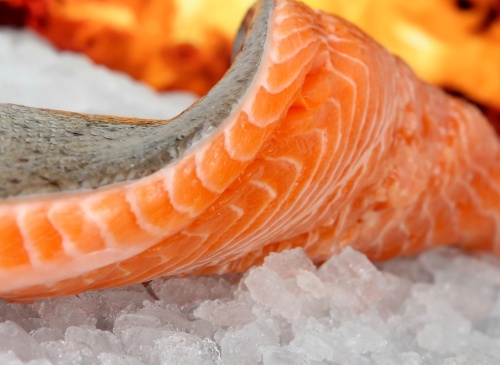Supermarket commercial properties in the UK are constantly fighting each other for custom by lowering prices, pushing special offers and, in general, attempting to attract the masses to their stores. However, Asda has raised the stakes further, by selling a luxury food product for a recession-busting £2.

The cost of Asda’s wild Alaskan salmon, which arrives at the commercial properties pre-frozen for freshness, works out at £2.38 per kilogram – or £2 for 840 grams, as the commercial property giant is advertising it. This means that smoked salmon, which is generally considered a luxury, could well become a cheap part of a daily meal, joining items such as chicken and mince on Britain’s dining tables.
Additionally, the fact that it is wild salmon makes the price seem even more incredible. Wild Alaskan salmon live on a diet of krill, as opposed to farmed fish that are fed a diet of processed fish foods. This, experts claim, leads to better taste and quality of the meat.
However, questions relating to the ethics of selling a luxury product at such a low price in UK commercial properties have been raised, with many demanding to know how Asda can make a profit whilst still offering a fair price to fishermen and sources. Also, rivals such as Tesco, Sainsbury’s and Morrisons fear losing out on sales, with suspicions being voiced over parent company Wal-Mart’s intentions. Many seem to believe that Wal-Mart is offering impossibly low prices for fish in its commercial properties as a means of undercutting the competition.
Yet Asda insists that these low prices are possible due to buying early and in bulk, meaning that the savings they make are passed on to the customers visiting their commercial properties.
Asda’s new price drop echoes the “£2 chicken” debate in 2007, where farmers claimed that the low prices devalued chicken as a meat, thus making chicken farmers substantial losses when selling to commercial property supermarkets. Animal rights protestors, meanwhile, said such costs would only be possible if the chickens were kept in inhumane conditions such as battery cages.
However, this is not an issue with salmon, as wild fishery stocks are protected by law, with quotas on catches and those allowed to fish being issued certificates to prove the legality of transactions with commercial property supermarkets.
Asda claim that they are able to offer frozen salmon for minimal prices as the fish they sell are smaller than in most commercial property supermarkets, and that through a steady process of pricing down the salmon they had been able to stabilise the price drop so customers would get the best deal. Originally, the fish were offered at £4 each, but this quickly dropped to £3 after Christmas.
Asda’s frozen fish buyer, Ged Futter, said; “We are always looking for ways to help our customers live the life of luxury without splashing out.”
Would you buy frozen salmon for £2 from your local Asda commercial property? Or do you believe that, ethically, it is wrong to buy luxury goods at bottom end prices?